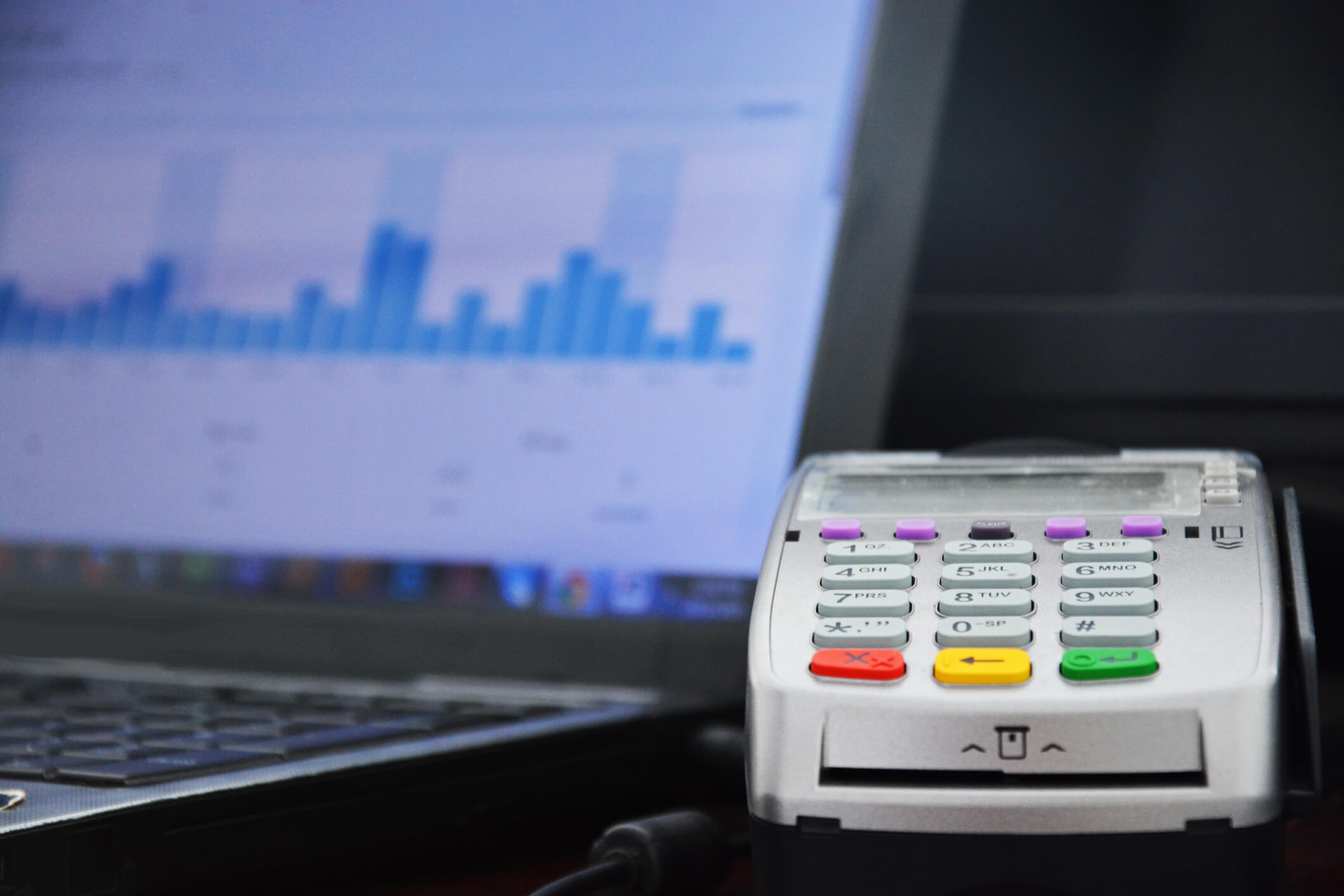As a contractor, accepting credit card payments can be a game-changer for your business. Not only does it provide convenience for your customers, but it also opens up new opportunities for growth and success. In this comprehensive guide, we will explore the importance of accepting credit card payments, the advantages it brings, common misconceptions, setting up your business to accept credit card payments, integrating credit card payment solutions, and overcoming challenges to maximize your success.
Understanding the Importance of Accepting Credit Card Payments

Accepting credit card payments is crucial in today’s digital age. With the rise of e-commerce and online transactions, customers expect the convenience and security that credit card payments offer. By accepting credit card payments, you are meeting the demands of your customers and staying competitive in the market.
Advantages of Accepting Credit Card Payments as a Contractor
There are numerous advantages to accepting credit card payments as a contractor. Firstly, it improves cash flow by allowing you to receive payments faster. Unlike checks or cash, credit card payments are processed electronically, reducing the time it takes for funds to reach your account. This can be especially beneficial for contractors who often have upfront expenses for materials or labor.
Secondly, accepting credit card payments increases customer satisfaction. Many customers prefer the convenience and security of paying with a credit card. By offering this option, you are providing a seamless and hassle-free experience for your customers, which can lead to repeat business and positive reviews.
Additionally, accepting credit card payments can help you attract new customers. Studies have shown that businesses that accept credit cards tend to generate more sales compared to those that only accept cash or checks. By expanding your payment options, you are tapping into a larger customer base and increasing your chances of securing new projects.
Common Misconceptions about Accepting Credit Card Payments as a Contractor
Despite the numerous advantages, there are some common misconceptions about accepting credit card payments as a contractor. One misconception is that it is expensive. While there are fees associated with credit card transactions, the benefits often outweigh the costs. It is important to understand the fees and costs associated with credit card payments, which we will discuss in detail later in this guide.
Another misconception is that it is complicated to set up. In reality, setting up your business to accept credit card payments can be a straightforward process. With the right payment processor and tools, you can easily integrate credit card payment solutions into your existing business operations.
Setting Up Your Business to Accept Credit Card Payments
Now that we understand the importance and advantages of accepting credit card payments, let’s explore how to set up your business to accept them.
Choosing the Right Payment Processor for Your Contractor Business

Choosing the right payment processor is crucial for a smooth and efficient credit card payment process. There are several factors to consider when selecting a payment processor, including fees, security measures, customer support, and compatibility with your existing systems.
Research different payment processors and compare their features and pricing structures. Look for processors that offer competitive rates and transparent fee structures. Consider the level of security they provide, such as encryption and fraud prevention measures. Additionally, ensure that the payment processor integrates seamlessly with your existing systems, such as your accounting software or point-of-sale (POS) system.
Understanding the Fees and Costs Associated with Credit Card Payments
When accepting credit card payments, it is important to understand the fees and costs involved. Common fees include transaction fees, interchange fees, and monthly fees. Transaction fees are charged for each credit card transaction, usually as a percentage of the transaction amount. Interchange fees are fees charged by the credit card networks, such as Visa or Mastercard, and vary depending on factors such as the type of card used and the transaction method. Monthly fees may include statement fees or gateway fees.
It is essential to carefully review the fee structures of different payment processors and choose the one that aligns with your business needs and budget. Consider the volume of credit card transactions you anticipate and calculate the potential costs associated with each payment processor.
Ensuring Security and Compliance with Credit Card Payments
Security and compliance are paramount when accepting credit card payments. As a contractor, you are responsible for safeguarding your customers’ sensitive payment information. Ensure that your payment processor complies with Payment Card Industry Data Security Standard (PCI DSS) requirements, which are designed to protect cardholder data.
Implement security measures such as encryption, tokenization, and fraud detection tools to minimize the risk of data breaches and fraudulent transactions. Regularly update your systems and software to stay ahead of potential vulnerabilities.
Integrating Credit Card Payment Solutions into Your Contractor Business
Now that you have set up your business to accept credit card payments, it’s time to integrate credit card payment solutions into your existing operations.
Selecting the Right Point-of-Sale (POS) System for Your Contractor Business
A point-of-sale (POS) system is a crucial tool for contractors to accept credit card payments in person. When selecting a POS system, consider factors such as ease of use, compatibility with your payment processor, and additional features that can enhance your business operations.
Look for POS systems that offer mobile capabilities, allowing you to accept payments on the go. Consider features such as inventory management, invoicing, and reporting, which can streamline your business processes and improve efficiency.
Integrating Online Payment Gateways for Remote Transactions
In addition to in-person transactions, contractors often need to accept credit card payments for remote transactions, such as online or over the phone. Integrating online payment gateways into your website or invoicing system allows you to securely accept credit card payments from anywhere.
Choose a payment gateway that is compatible with your website platform and offers a user-friendly interface for your customers. Ensure that the payment gateway provides robust security measures, such as encryption and fraud detection, to protect sensitive payment information.
Streamlining Credit Card Payment Processes for Efficiency
Efficiency is key when it comes to credit card payment processes. Streamlining your processes can save you time and resources, allowing you to focus on your core business activities.
Consider automating tasks such as invoicing and payment reminders. Use tools that integrate with your payment processor and accounting software to simplify reconciliation and reporting. By streamlining your credit card payment processes, you can reduce administrative burdens and improve overall efficiency.
Overcoming Challenges and Maximizing Success with Credit Card Payments
While accepting credit card payments offers numerous benefits, there are also challenges that contractors may face. Let’s explore how to overcome these challenges and maximize your success.
Dealing with Chargebacks and Disputes as a Contractor
Chargebacks and disputes can be a common challenge when accepting credit card payments. A chargeback occurs when a customer disputes a credit card transaction and requests a refund. As a contractor, it is important to have clear policies and documentation to protect yourself against unwarranted chargebacks.
Maintain detailed records of all transactions, including contracts, invoices, and proof of completion. Clearly communicate your refund and cancellation policies to customers to manage expectations. In the event of a dispute, work closely with your payment processor to provide evidence and resolve the issue in a timely manner.
Implementing Best Practices for Credit Card Payment Acceptance
Implementing best practices for credit card payment acceptance can help you minimize risks and maximize success. Some best practices include:
- Educate yourself and your staff on credit card payment processes, security measures, and fraud prevention.
Regularly review and update your security measures to protect against data breaches and fraudulent transactions.
Train your staff on proper handling of credit card information and customer privacy.
Clearly communicate your payment policies and expectations to customers.
Regularly reconcile your credit card transactions and monitor for any discrepancies or suspicious activity.
Leveraging Credit Card Payments to Boost Your Contractor Business
Accepting credit card payments can be a powerful tool for boosting your contractor business. By offering this convenient payment option, you can attract new customers, increase customer satisfaction, and improve cash flow. Use credit card payments as a marketing tool by highlighting this feature on your website and promotional materials. Encourage satisfied customers to leave reviews and testimonials, emphasizing the ease and convenience of paying with a credit card.
FAQs:
Q1: What are the main benefits of accepting credit card payments as a contractor?
Accepting credit card payments improves cash flow, increases customer satisfaction, and attracts new customers.
Q2: How do I choose the right payment processor for my contractor business?
Consider factors such as fees, security measures, customer support, and compatibility with your existing systems when choosing a payment processor.
Q3: What fees and costs should I expect when accepting credit card payments?
Common fees include transaction fees, interchange fees, and monthly fees. Carefully review the fee structures of different payment processors to understand the costs involved.
Q4: How can I ensure the security and compliance of credit card payments?
Choose a payment processor that complies with PCI DSS requirements and implement security measures such as encryption and fraud detection tools.
Q5: What are the best practices for integrating credit card payment solutions into my contractor business?
Educate yourself and your staff on credit card payment processes, regularly review and update security measures, train staff on proper handling of credit card information, clearly communicate payment policies, and regularly reconcile transactions.
Conclusion
In conclusion, accepting credit card payments as a contractor can significantly enhance your business’s growth and success. By understanding the importance, advantages, and misconceptions surrounding credit card payments, you can make informed decisions. Setting up your business to accept credit card payments involves selecting the right payment processor, understanding associated fees, and ensuring security and compliance. Integrating credit card payment solutions, such as POS systems and online gateways, can streamline your processes and improve efficiency. Overcoming challenges, such as chargebacks, and implementing best practices will maximize your success. Embracing credit card payments as a contractor opens up new opportunities and helps propel your business forward.
